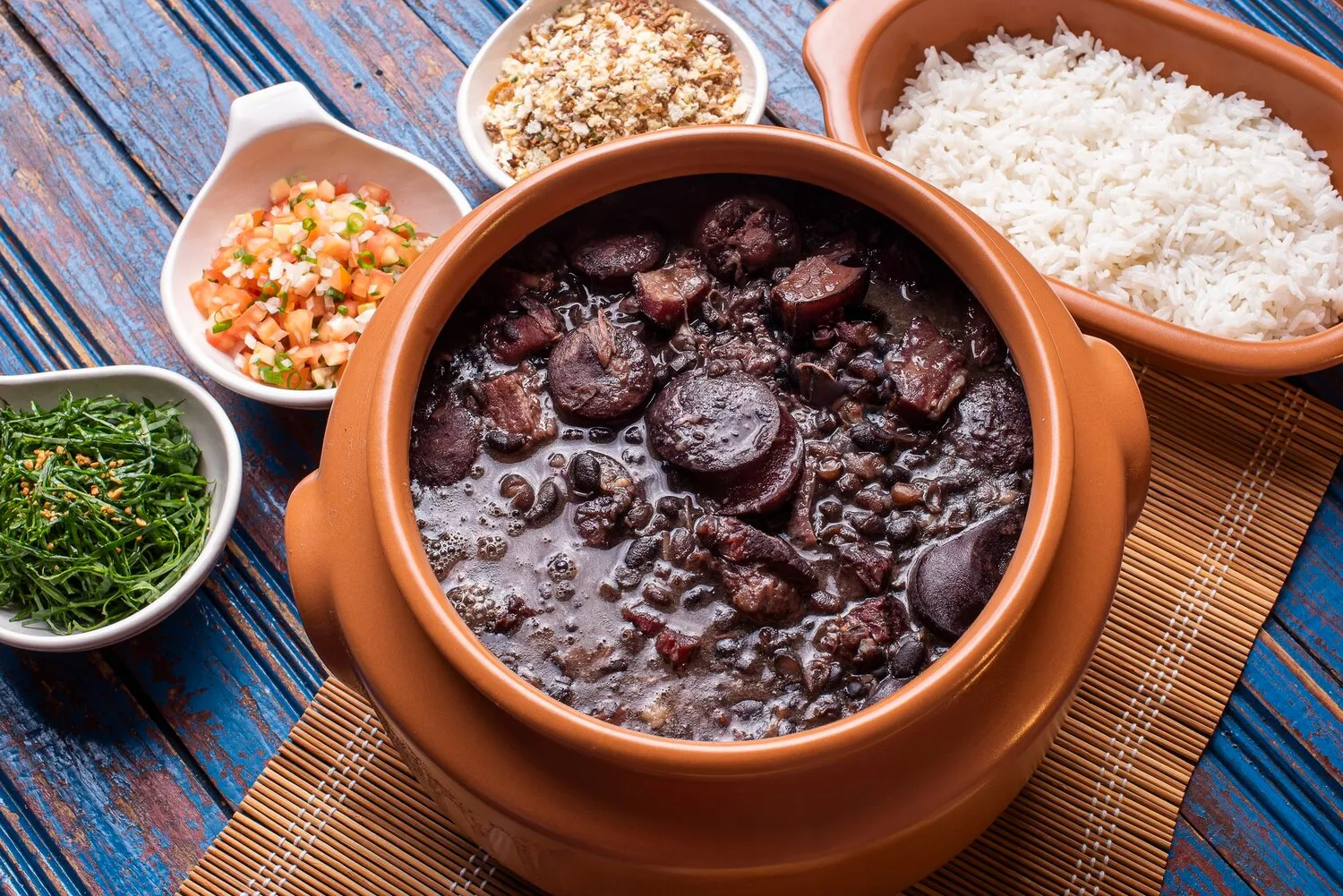
Feijoada
Brazil's national dish: a hearty stew of black beans cooked with various cuts of salted pork, beef, and smoked sausages. Served with rice, collard greens, farofa (toasted cassava flour), and orange slices.
Nutrition Facts
* The % Daily Value (DV) tells you how much a nutrient in a serving of food contributes to a daily diet. 2,000 calories a day is used for general nutrition advice.
Boteco Carioca
Feijoada's origins are debated, with some believing it evolved from the food of enslaved Africans in Brazil, who supposedly used discarded cuts of pork. Others argue it's a European-influenced dish, similar to other bean stews found in Portugal and Spain, adapted with local ingredients. The truth likely lies in a combination of these influences, with indigenous ingredients and cooking techniques also contributing to its development.
Feijoada is more than just a dish; it's a social event, often enjoyed on weekends with family and friends. It represents Brazilian hospitality and the joy of sharing a communal meal.
Weekend Tradition
Feijoada is traditionally eaten on Saturdays or Sundays, giving families and friends the opportunity to gather and spend quality time together.
Symbol of Brazilian Identity
It is widely considered Brazil's national dish, reflecting the country's diverse cultural influences and its history.
Regional Variations
While the basic concept remains the same, different regions of Brazil have their own variations of Feijoada, using locally available meats and ingredients.
Feijoada is a symphony of savory, smoky, and slightly salty flavors, deeply rooted in the diverse cuts of pork and beef it contains. The black beans provide a creamy, earthy base that complements the richness of the meats.
The primary flavor profile is a hearty blend of smoky meats (bacon, sausages, dried beef), savory pork (ears, feet, ribs), and the earthy taste of black beans. Garlic, onions, and bay leaves are essential aromatics. The accompanying rice provides a neutral counterpoint, while collard greens offer a slightly bitter balance. Farofa adds a textural element and nutty flavor, and orange slices provide a refreshing citrus counterpoint, cutting through the richness of the stew.
Soaking the Beans
Soak the black beans overnight (or for at least 4-6 hours) to reduce cooking time and improve their digestibility.
Desalting the Meats
Thoroughly desalting the salted meats (dried beef, bacon, etc.) is crucial. Soak them in several changes of water for 24-48 hours before cooking.
Cooking the Meats Separately
Some cooks prefer to cook the different meats separately and add them to the beans at different stages, ensuring each is cooked to perfection.
Serve with Accompaniments
Don't forget the traditional accompaniments: rice, collard greens, farofa, and orange slices. They complete the Feijoada experience.
Patience is Key
Feijoada requires time and patience. Allow ample time for the beans and meats to simmer and develop their flavors.
Explore additional Brazilian Stew dishes and restaurants
Explore Brazilian StewDiscover top dining spots and culinary experiences in Vitória da Conquista.
Explore Vitória da ConquistaLearn more about the food culture, restaurant scene, and culinary heritage of Brazil.
Explore Brazil